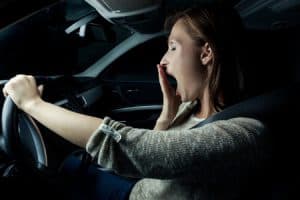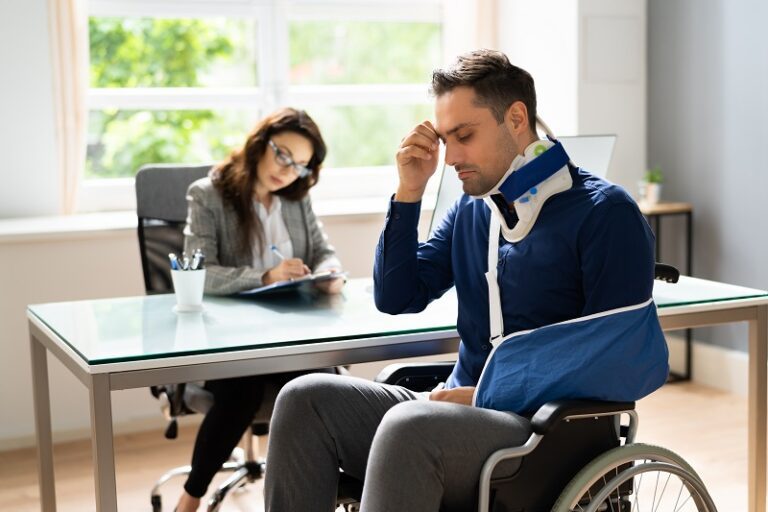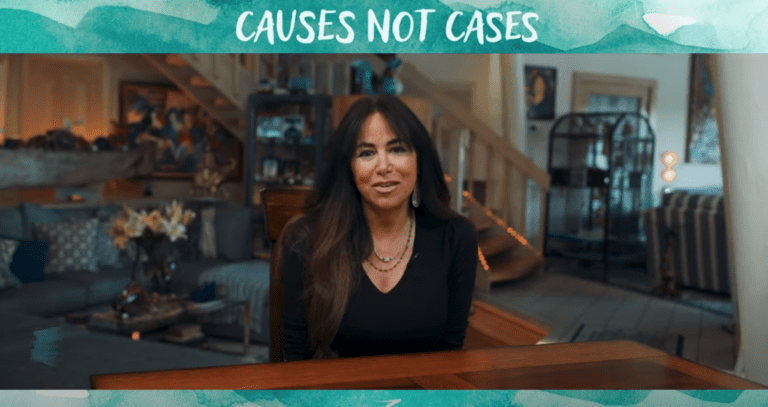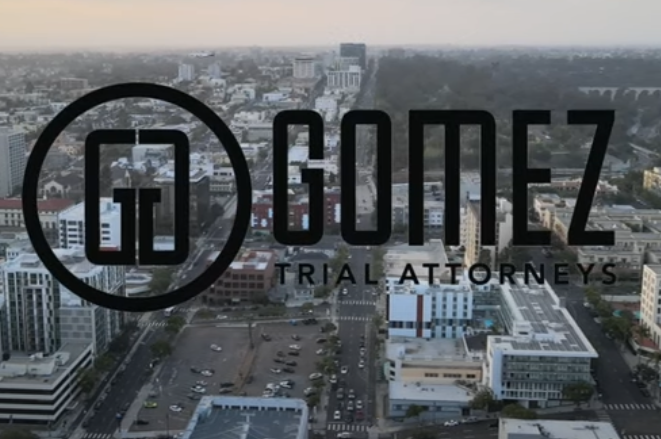 Driver fatigue poses a serious hazard for drivers every day. Many drivers each year confess to driving while tired or even to falling asleep behind the wheel. Unfortunately, driver fatigue can have serious overall impacts on drivers’ ability to handle their vehicles safely.
Driver fatigue poses a serious hazard for drivers every day. Many drivers each year confess to driving while tired or even to falling asleep behind the wheel. Unfortunately, driver fatigue can have serious overall impacts on drivers’ ability to handle their vehicles safely.
Many of the effects of driving while fatigued can show a similar impact to driving while intoxicated. Fatigued drivers may have poor decision-making skills and suffer from an inability to safely control the vehicle.
Knowledge of the hazards of driving while fatigued, however, may not stop San Diego drivers from getting behind the wheel while fatigued. After a long day at work, San Diego drivers can often expect a long commute home; during rush hour, San Diego sees extremely heavy traffic and may experience slowdowns that drop average speeds below 45 miles per hour.
Not only that, San Diego has many businesses that are open 24/7, which means that workers and patrons alike may drive at any hour. The more time drivers spend on the road during those hours when their bodies crave sleep, the greater the likelihood that they will suffer a fatigue-related accident.
Five Common Causes of Driving While Fatigued
Fatigued driving can occur for a variety of reasons. The U.S. Centers for Disease Control and Prevention (CDC) lists some of the most common challenges that lead to fatigued driving.
1. Being awake for too many consecutive hours.
All too often, drivers become fatigued because they have stayed awake for too long. They had to roll out of bed early in the morning, work a long shift at work, and then head out on the go with their families. At the end of the evening, they may struggle to keep their eyes open. Many people nevertheless push forward, trying to check everything off of their lists before calling it a day. As a result, drivers may suffer from higher levels of fatigued driving and a greater accident risk out on the road.
2. Failing to get enough sleep for several days.
One night of short sleep may leave drivers feeling a little groggy, but they can still safely manage on the road. Over several nights, however, missing sleep can add up. On average, Americans need at least 7.1 hours of sleep per night. Failing to get adequate rest several days in a row can leave people in a constant sleep deficit, which may take several days of adequate sleep to catch up fully. Professionals who burn the candle at both ends, as well as parents of young children, often struggle with ongoing sleep deficits, which may lead to substantial challenges when driving. Unfortunately, many people get so used to living with a chronic sleep deficit that they no longer recognize the ongoing signs of severe fatigue.
3. Driving for a long time without a break.
Driving often involves a great deal of monotony. While San Diego offers some gorgeous scenery, from gorgeous shorelines to palm tree-lined roads, even the most gorgeous scenery can fade into the background when you’ve spent too long on the road. People who drive for a living, including Uber and Lyft drivers and delivery drivers, may also have a higher risk of suffering from substantial fatigue from too many hours on the road. For some drivers, breaking up the route can help decrease that fatigue. Other drivers, however, may need to learn to recognize the warning signs of fatigue and get off the road for the day.
4. Health problems or medications that make drivers more drowsy than usual.
Many medications, including common cold and flu medications and even over-the-counter allergy medications, can lead to increased drowsiness. Many drivers struggle to keep their eyes open when taking those medications, especially if they already have to contend with the impacts of the illness that required taking that medication in the first place. Many drivers struggle to grapple with the effects of drowsiness when taking medications and should carefully check their medications to ensure that they can take them safely before getting behind the wheel.
5. Driving too early in the morning or too late at night.
Your body has a natural cycle that tells it when you should stay at your most alert and when you should fall asleep. For most people, during the early morning hours, you will struggle with a strong urge to sleep. However, you may also struggle with that urge to sleep at night, especially if you have had a long day or awakened in the middle of your usual sleep cycle. Drivers who respect their bodies’ natural rhythms and avoid getting behind the wheel during the most difficult hours will enjoy less drowsiness behind the wheel.
The Five Most Common Impacts of Driving While Drowsy
Drowsy driving can make San Diego drivers dangerous to themselves and others.
1. Drowsy drivers may fall asleep behind the wheel.
When drivers fall asleep behind the wheel, especially if they fall asleep with no passengers in the vehicle, their cars have no one to control them. Often, a driver’s foot will remain on the gas pedal, which means the car will continue to move forward, out of control. The car may crash into something on either side of it or at the front of the vehicle before the driver wakes up.
Nodding off behind the wheel can pose the most potent danger for drowsy drivers. Many people, however, still admit to having nodded off behind the wheel, and may continue driving even after nodding off. Falling asleep while driving may cause single-car accidents or cause accidents involving multiple vehicles and a great deal of damage.
2. Drowsy drivers may struggle to make rational choices.
Most people do not make their best decisions when sleepy. They may have a hard time assimilating information or reacting appropriately to stimuli. Many people struggle with increased impulsivity as they become increasingly tired. Behind the wheel, that lack of decision-making ability can become incredibly dangerous. As decision-making skills deteriorate, drowsy drivers may have a harder time responding appropriately to any challenge that they may face on the road: another vehicle pulling out in front of them, a pedestrian stumbling in front of the car, or even navigating an upcoming exit from the highway safely.
3. Fatigued drivers may have slowed reflexes.
When tired, you may naturally have trouble reacting reflexively to a situation. Someone throws something at you, for example, and you might allow it to fall to the floor instead of catching it. For drowsy drivers, however, that loss of natural reflexes can prove catastrophic. Many of the movements you regularly perform behind the wheel require more reflexive action than conscious thought: steering away from a car drifting into your lane, for example, or braking quickly when someone slams on the brakes in front of you. Fatigue, however, can dull those reflexes, making it difficult for a fatigued driver to avoid a potential accident.
4. Fatigue can cause tunnel vision.
As they notice fatigue increasing, many drivers will concentrate on what’s directly in front of them. As long as they keep paying attention to what’s right in front of them, they assume that they can continue to navigate safely. Unfortunately, hyper-focusing on that one specific area can lead to tunnel vision, which may make it difficult for the driver to see anything else happening in the vicinity. Tunnel vision may cause drivers to lose track of what’s happening on their periphery, which may cause them to miss vital warning signs that another vehicle may soon cause an accident or that they have missed their turn.
5. Fatigued drivers may have trouble with zoning out or otherwise losing track of miles traveled.
At one point or another, most people have eventually zoned out on the road. In such a situation, drivers stop paying attention and instead just settle in, then arrive at their destination with little memory of how they got there. For fatigued drivers, this may have even more severe consequences. Fatigued drivers may have a hard time remembering how they arrived at their destinations at all. If they do not kick into autopilot on a familiar route, they may end up further from their destination and unsure of their current location, which can make it more difficult for them to get back home.
What to Do After a San Diego Fatigued Driving Accident: Three Steps You Need to Take
You got into an accident with a fatigued driver, perhaps even one who admits to falling asleep behind the wheel. Now what? Take these steps to help protect yourself and increase odds that you will receive compensation for your injuries following the accident:
1. Call in the accident to the San Diego police department.
You can call 911 to summon both the police and an ambulance to the scene, if needed. Always report any type of accident, including fatigued driving accidents, to the police, even if you believe that no one suffered a serious injury. At-fault drivers may try to talk you into heading home without reporting the accident. They may try to argue exhaustion or worry that they will end up with more points on their licenses, especially if they frequently drive while fatigued or have suffered accidents in the past because they did not get adequate rest before getting behind the wheel.
Failure to report a fatigued driving accident, however, may leave you facing a much more difficult battle to recover compensation for your injuries. Without a police report, you may not have proof that the other driver caused the accident. If the other driver or that driver’s insurance company contests the accident, you may have a harder time proving negligence and securing compensation for the full cost of your accident.
When the police arrive, give an accurate account of what happened during the accident. You do not need to extrapolate or provide your own guesses about what happened. Instead, offer a simple recitation of events that allows the police to understand what occurred.
2. Seek medical attention.
Fatigued driving accidents occur most often at night or in the early hours of the morning. You may have headed home, planning to get some rest after a long shift of your own. You may just want to get to your own bed as soon as possible, especially as the adrenaline from the accident starts to wear off.
You cannot, however, skip seeking medical attention for your injuries. If you know you suffered serious injuries, often because you have obviously broken bones, clear signs of traumatic brain injury, or severe lacerations, you may need to use an ambulance to get to the hospital. Other injuries, however, may prove less obvious. You may not notice back and neck injuries in the immediate aftermath of the accident. You might even fail to notice broken bones, especially if fatigue combines with adrenaline to conceal signs of those injuries.
San Diego offers a variety of hospitals and emergency rooms, from UC San Diego Medical Center to Kindred Hospital San Diego. If you have relatively minor injuries, you may also choose to proceed to an urgent care center, if you can find one open to treat your injuries. Those hospitals and medical care facilities can provide evidence of when your injuries occurred, help you put together a treatment plan, and decrease the odds that you will inadvertently worsen your injuries by failing to seek treatment.

3. Contact an experienced San Diego car accident attorney.
As soon after your accident as possible, get in touch with an experienced car accident attorney to get a better idea of how much compensation you should seek for your injuries. An attorney can help investigate the circumstances that led to your accident, evaluate the extent of your injuries, and, in many cases, file a claim on your behalf.
Did you suffer serious injuries in a San Diego fatigued driving accident? Contact an attorney today to learn more about your right to seek compensation for your injuries.







